Text

why does this look so satisfying???
#study blog#aesthetic notes#studying#uniblr#chemistry#chem#chemistry exam#digital notes#study notes#notes#chem notes#practice#study#trans students#queer studyblr#university
45 notes
·
View notes
Text
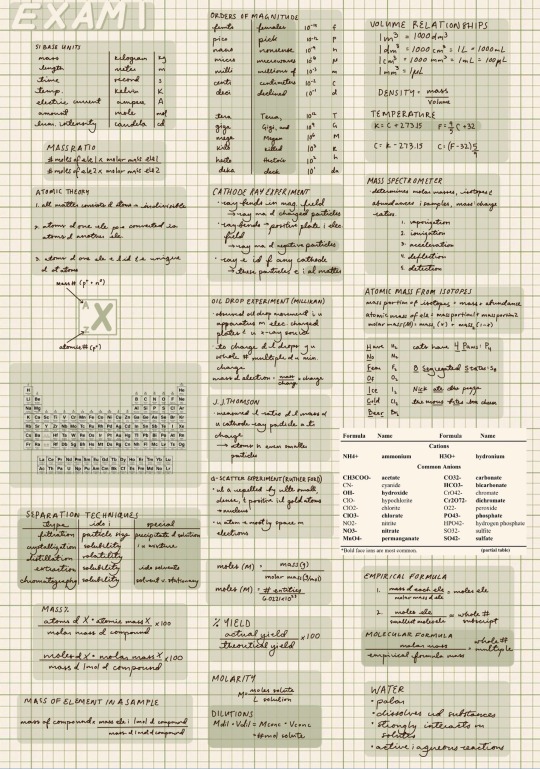

some sage green summary notes in preparation for my first exam of the summer. idk what it is, but at some point something just clicked and now i understand so much more than i thought i would!
#chemistry#academia#student#studying#studyblr#digital notes#queer studyblr#trans student#notes#exam study#study#study notes#chemistry notes#chem#chem exam#chem studying
21 notes
·
View notes
Text

haven’t taken paper-pencil notes in over a year! my eyesight definitely does not like the inability to zoom in…👓
#chemistry#science#study#study blog#uniblr#studying#study space#trans students#trans student#queer studyblr#school#notes#written notes
18 notes
·
View notes
Text
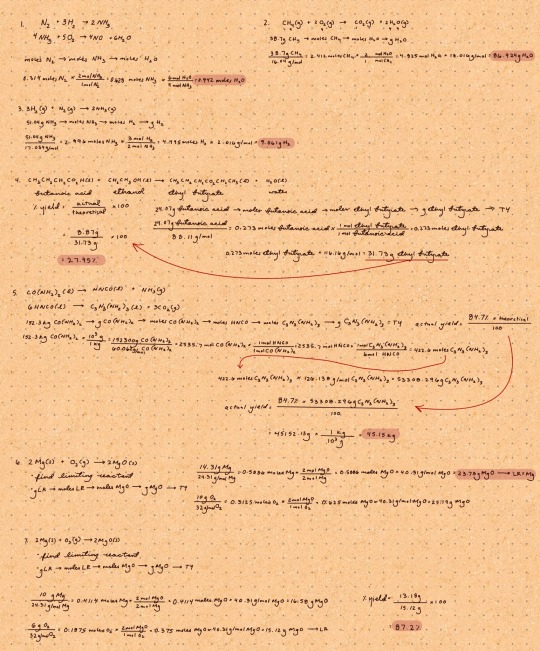
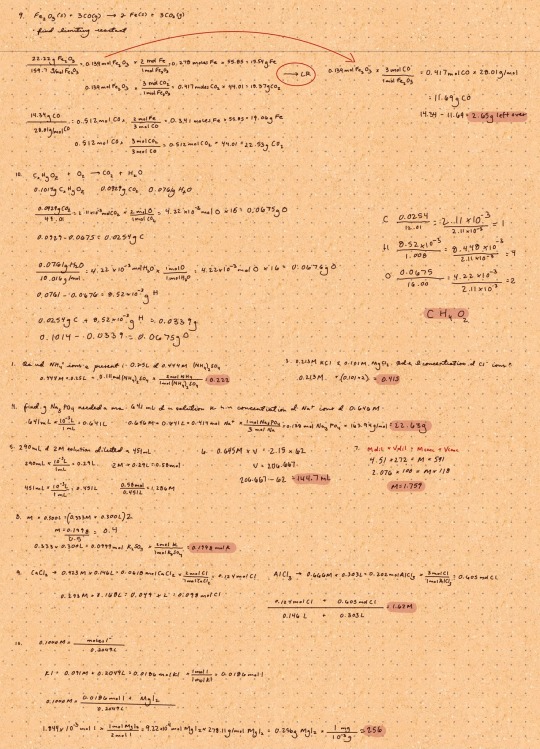
finally settling into the summer semester! i’m so glad i decided to take chem this semester so that i can dedicate more time to it!
#academia#student#studying#studyblr#digital notes#queer studyblr#trans student#notes#chemistry#chemblr#chem#study notes#chemistry notes
94 notes
·
View notes
Text
i’m the professor of eating dirt call me loam chompsky
16K notes
·
View notes
Text

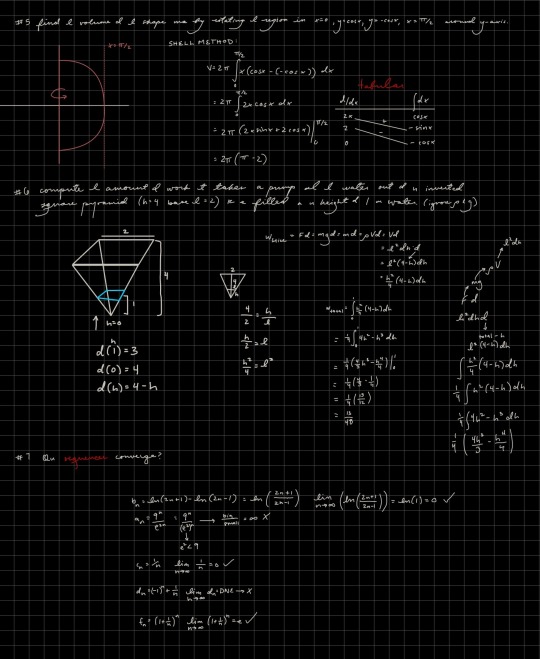
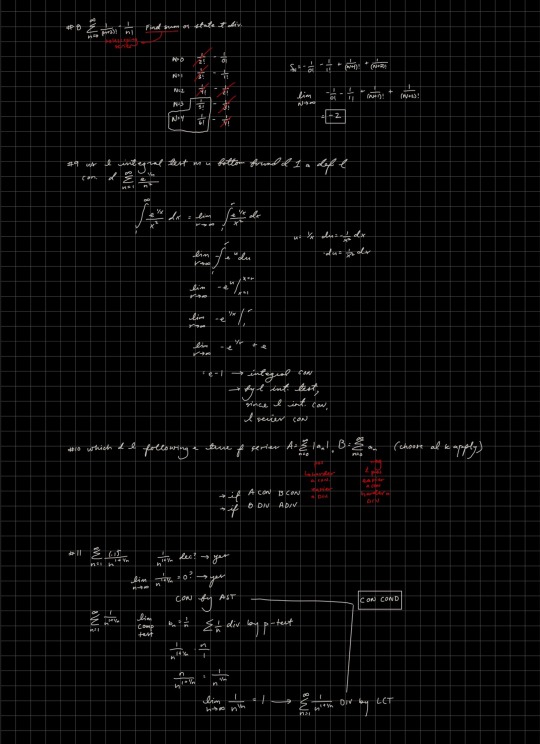
thus ends season two of undergrad! i’m gonna miss calc, but i’m pumped to start doing more chemistry and bio!
#academia#student#studying#studyblr#digital notes#queer studyblr#trans student#notes#mathematics#calculus#studying for finals#finals#finals week#finals season#finals studying
18 notes
·
View notes
Text


exam on monday! tfw you think you have a really good handle on the content but your professor says the test is gonna be hard, so you start sweating
#i love calculus i swear#i just hate exams#study notes#study#school#studyblr#student#studying#mathstudent#math#mathematics#calculus#parametric equations#taylor series#maclaurin series#power series#exam preparation#exam#examstress#exam stress#exam study#practice#study hard#university#college
17 notes
·
View notes
Text
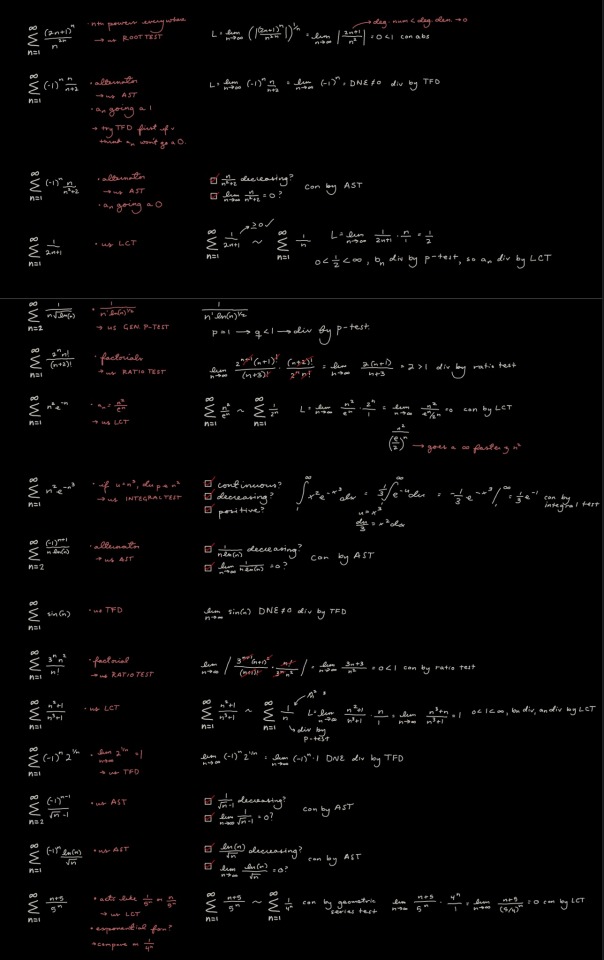
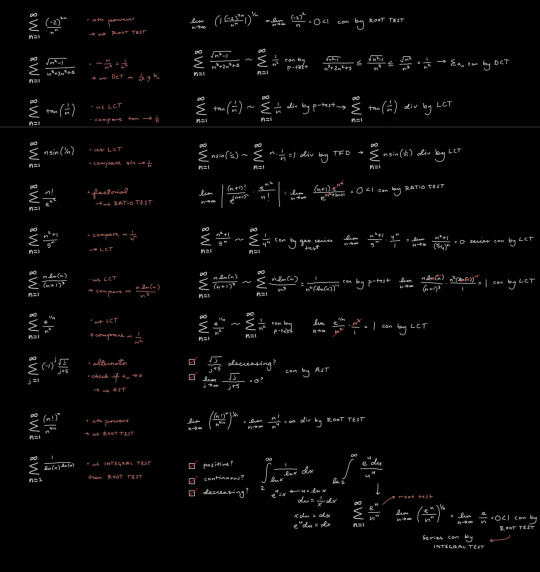
my hands are cramping, but this is so satisfying...
#mathematics#calculus#academia#student#studying#digital notes#queer studyblr#studyblr#trans student#notes#practice#study#exam study#stress
12 notes
·
View notes
Text

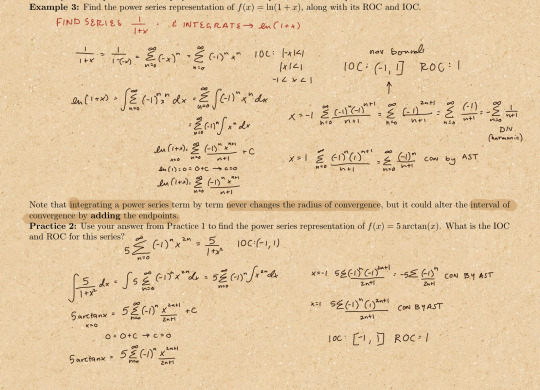
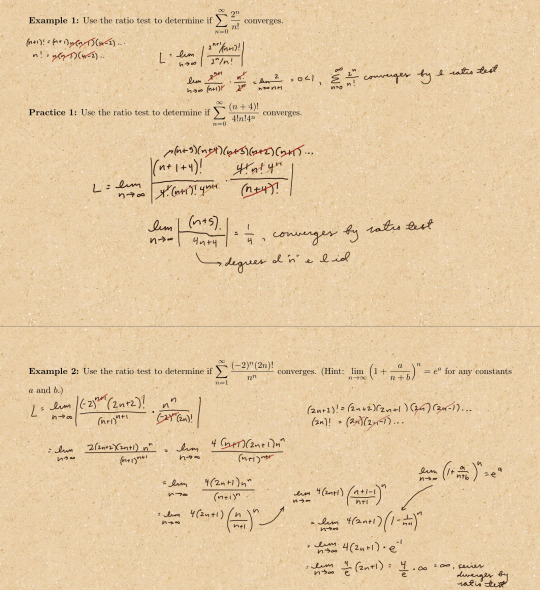
i am once again photo-dumping my math notes in a desperate attempt to gain motivation on this fine morning.
#mathematics#calculus#academia#student#studying#digital notes#queer studyblr#studyblr#trans student#notes#study#exam study
165 notes
·
View notes
Text
Cognitive Load Theory and Language Learning
aka “Me Pretending I’m Doing My Assignment”.
Cognitive Load Theory is what I’m currently studying in educational psychology and you guys seem to like it when I talk about theories of second language acquisition so here we go.
What you first need to know is this:
Learning is essentially engraining information, concepts, and processes, in our long-term memory.
We take in new information through our sensory memory, which is processed in our working memory. Working memory is the main one to keep in mind here. What we do with information in our working memory determines whether or not it ends up in our long-term memory.
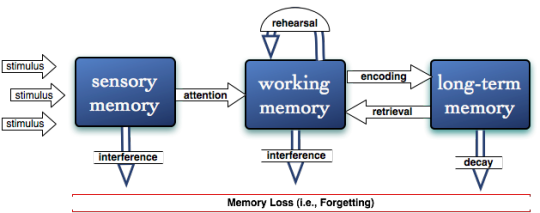
So what’s cognitive load?
Cognitive load is basically the amount of space we have in our working memory. In other words, it’s the amount of mental space, or our capacity to put in mental effort. There are three sections that make up our total cognitive load:
Intrinsic load = the effort it takes to process the inherent difficulty of the task/information.
Extraneous load = the effort it takes to process unnecessary information that doesn’t contribute to learning.
Germane load = the effort it takes to encode the new information into our long-term memory.
As teachers, even of ourselves, we want to manage intrinsic load, and reduce the amount of extraneous load as much as possible, so as to make room in our cognitive capacity for germane load - actually learning the information.
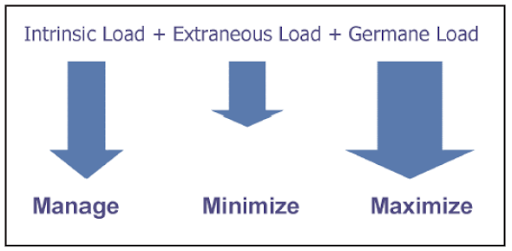
Applying this to language-learning.
Have conversations with yourself in your TL: This is known as the “Imagination and Self Explanation Effect”, and has shown to increase the construction of schemas (commitment of information to long-term memory). Talk to yourself. Explain new concepts to yourself. Pretend you’re in your target language country and you need to ask a stranger how to get to the train station.
Avoid using too many new resources at once: We all know that just using Duolingo isn’t going to teach you a language. With that being said, it’s important to not use too many resources either, particularly in the beginner stages when intrinsic load is high. If you’re using three textbooks, extraneous load will increase because you’re constantly having to adjust to the new textbook’s different colour scheme, different font, different flow and presentation of information. You’ll have less room left for the all-important germane load. Try to stick to one textbook.
Make sure input is comprehensive: This is a favourite of mine. If I’m a beginner in a language, watching a TV show for adults will hardly contribute to my learning at all. All my working memory capacity will be consumed by intrinsic load, because the task is far too difficult, and this will leave no room for germane load. Making input more comprehensive can mean choosing texts that are written for a younger audience, and/or texts with which you are already familiar (because understanding plot, character relationships, etc. also uses load).
Learn languages that are similar to each other: The disadvantage of learning similar languages is getting them mixed up. However, the advantage of learning a language similar to one that we already know, is that we have already constructed schemas in our long-term memory, which can be retrieved (see first diagram) when processing information from the new language in our working memory. Again, this reduces cognitive overload, and we can learn faster.
Get a teacher: I know many of you won’t want to hear this, but self-studying overwhelms cognitive load to a massive degree. When you are having to find your own resources, understand and explain concepts to yourself, etc. this all requires load, and this can all be removed with a teacher, freeing up more space for germane load. In other words, you’re expending a lot of your limited capacity for mental effort on all these unnecessary things when you could be using that effort on actually learning the content. Indeed, the main takeaway from this theory is that explicit teaching works best.
Stop translating: I see a lot of posts where people write out a sentence or paragraph translated into several of their target languages, The actual effort of translating, as opposed to thinking in your TL, uses load.
260 notes
·
View notes
Text
gorgeous notes!!

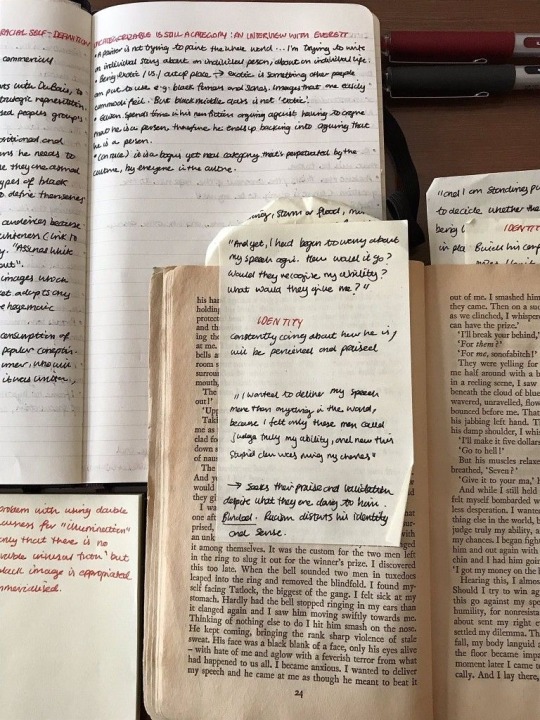
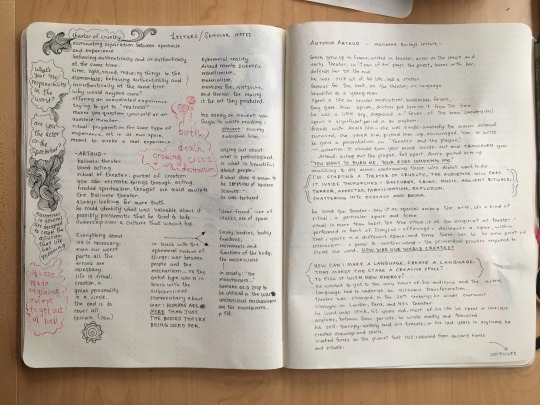
studying is starting to grow on me
3K notes
·
View notes
Text
How to teach yourself linguistics online for free
Wish you were enrolled in an intro linguistics class this semester? Starting a linguistics major and looking for extra help? Trying to figure out whether you should study linguistics and what comes after? Whether you’re just trying to grasp the basics of linguistics or you’re trying to construct a full online linguistics course, here’s a comprehensive list of free linguistics websites, podcasts, videos, blogs, and other resources from around the internet:
Linguistics Podcasts
Specific episodes:
The International Phonetic Alphabet
Constituency
Gricean Maxims
Kids These Days aren’t ruining language
Learning languages linguistically
Podcasts in general:
Lingthusiasm
The History of English Podcast
Talk the Talk
Lexicon Valley
The World in Words
A Way With Words
Linguistics Videos
Modular topics:
NativLang (cartoons)
The Ling Space
Tom Scott’s Language Files
Arika Okrent (whiteboard videos)
Structured video series like an online course:
Introduction to Linguistics (TrevTutor)
Another intro linguistics series (DS Bigham)
Phonology (TrevTutor)
Mathematical linguistics (TrevTutor)
Syntax (TrevTutor)
Another syntax series following the chapter structure of a free online syntax textbook (Caroline Heycock)
The Virtual Linguistics Campus at Marburg University
Blog posts
General
How much do I need to know before taking intro linguistics? (Spoiler: not much)
28 tips for doing better in your intro linguistics course
How to find a topic for your linguistics essay or research paper
For typesetting linguistics symbols: What is LaTeX and why do linguists love it? (with sample LaTeX doc to download and modify).
Further linguistics resources about specific areas, such as sociolinguistics, psycholinguistics, language acquisition (first/second), historical linguistics, neurolinguistics, prescriptivism.
Phonetics & Phonology
How to make your own paper model of the larynx
Teaching phonetics using lollipops
How to remember the IPA vowel chart
How to remember the IPA consonant chart
IPA transcription practice
A detailed explanation of sonorants, obstruents, and sonority
A very elaborate Venn diagram of English phonological features
The basics of how Optimality Theory works, with coffee analogy
Allophones of /t/, explained with internet gifs
Several good visualizations and explanations of the vocal tract
How to type IPA on your phone (Android and iOS)
Various ways to type IPA on a computer
Morphology & Syntax
Morphological typology cartoons
So you asked the internet how to draw syntax trees. Here’s why you’re confused.
Types of trees: a sentence is an S, a sentence is an IP, a sentence is a TP
A step-by-step guide to drawing a syntax tree, with gifs
Distributed Morphology
Garden path sentences: how they work, some examples
Structural ambiguity and understanding people in Ipswich
How to draw trees on a computer (TreeForm and phpSyntaxTree)
Pronoun typology and “the gay fanfiction problem”
The solution to violent example sentences: Pokemon
Semantics & Pragmatics
The difference between epistemic and deontic, necessity and possibility (with bonus modals as Hogwarts houses)
Why learn semantics? Comebacks to annoying people.
Presuppositions, implicature and entailment, and more presuppositions in Lizzie Bennet Diaries
Gricean maxims in Welcome to Night Vale
Scalar implicature and a duck gif
Giving a shit about Negative Polarity Items, NPIs explained using Mean Girls references, and a follow-up on Free Choice Items
The lambda calculus for absolute dummies
The Lambda Calculator (software for practising in Heim & Kratzer style)
Teaching & Academic/career advice
Linguistics resources for high school teachers
Teaching linguistics to 9-14 year olds
On writing an IB extended essay in linguistics (& follow-up)
IPA Bingo
IPA Jeopardy and IPA Hangman
Practising syntax trees using cards and string/straws
Find a linguistics olympiad near you!
Editing linguistics Wikipedia articles instead of writing a final paper that no one but the prof will read (see also wikiedu.org)
Should you go to grad school in linguistics? Maybe
Figuring out if you actually want to go to linguistics grad school
How to decide which linguistics grad school to go to
How to look for linguistics undergrad programs
How to interact with someone who’s just given a talk
An extensive list of undergrad and/or student-friendly conferences - apply to one near you!
Linguistics jobs - a series about careers outside academia
Languages
Linguistic approaches to language learning resource roundup
Will linguistics help with language learning? / Will learning a second language help with linguistics?
The problem with “economically useful” as a reason for language learning
Further link roundups
This list not enough? Try these further masterposts:
A very long list of linguistics movies, documentaries, and TV show episodes
Books (fiction and nonfiction) about linguistics
Linguistics podcasts
Linguistics videos on YouTube
20 linguistics blogs I recommend following
How to explain linguistics to your friends and family this holiday season
17K notes
·
View notes
Text


7K notes
·
View notes
Text

studying for friday’s math exam! lets hope i don’t have a tic attack during this one like last time!!
#there is a special place in hell for online exams#online exams#mathematics#calculus#sequences and series#exam stress#exam study#academia#student#studying#digital notes#queer studyblr#studyblr#trans student#notes#exams#sequences#series#math#mathblr#integration#study
13 notes
·
View notes
Text
Routledge Masterpost
Here are all of the Routledge Grammar PDFs that I currently have. I’ll be updating whenever I find more. Let me know if there’s one in particular you want me to look for^^
Last Update: 2017/04/24
Fixed Intermediate Japanese: A Grammar and Workbook link
Added books for Czech, English, French, French Creoles, Persian, Ukranian
Added more books in Cantonese, Danish, Greek, Polish, Spanish, Swedish
Arabic
Arabic: An Essential Grammar
Basic Arabic: A Grammar and Workbook
Modern Written Arabic: A Comprehensive Grammar
Cantonese
Basic Cantonese: A Grammar and Workbook
Cantonese: A Comprehensive Grammar
Intermediate Cantonese: A Grammar and Workbook
Czech
Czech: An Essential Grammar
Danish
Danish: A Comprehensive Grammar
Danish: An Essential Grammar
Dutch
Basic Dutch: A Grammar and Workbook
Dutch: A Comprehensive Grammar
Dutch: An Essential Grammar
Intermediate Dutch: A Grammar and Workbook
English
English: An Essential Grammar
Finnish
Finnish: An Essential Grammar
French
Modern French Grammar Workbook
French Creoles
French Creoles: A Comprehensive and Comparative Grammar
German
Basic German: A Grammar and Workbook
German: An Essential Grammar
Intermediate German: A Grammar and Workbook
Greek
Greek: A Comprehensive Grammar
Greek: An Essential Grammar of the Modern Language
Hindi
Hindi: An Essential Grammar
Hebrew
Modern Hebrew: An Essential Grammar
Hungarian
Hungarian: An Essential Grammar
Indonesian
Indonesian: A Comprehensive Grammar
Irish
Basic Irish: A Grammar and Workbook
Intermediate Irish: A Grammar and Workbook
Italian
Basic Italian: A Grammar and Workbook
Japanese
Basic Japanese: A Grammar and Workbook
Intermediate Japanese: A Grammar and Workbook
Japanese: A Comprehensive Grammar
Korean
Basic Korean: A Grammar and Workbook
Intermediate Korean: A Grammar and Workbook
Korean: A Comprehensive Grammar
Latin
Intensive Basic Latin: A Grammar and Workbook
Intensive Intermediate Latin: A Grammar and Workbook
Latvian
Latvian: An Essential Grammar
Mandarin Chinese
Basic Chinese: A Grammar and Workbook
Intermediate Chinese: A Grammar and Workbook
Chinese: A Comprehensive Grammar
Chinese: An Essential Grammar
Norwegian
Norwegian: An Essential Grammar
Persian
Basic Persian: A Grammar and Workbook
Intermediate Persian: A Grammar and Workbook
Polish
Basic Polish: A Grammar and Workbook
Intermediate Polish: A Grammar and Workbook
Polish: A Comprehensive Grammar
Polish: An Essential Grammar
Portuguese
Portuguese: An Essential Grammar
Romanian
Romanian: An Essential Grammar
Russian
Basic Russian: A Grammar and Workbook
Intermediate Russian: A Grammar and Workbook
Serbian
Serbian: An Essential Grammar
Spanish
Basic Spanish: A Grammar and Workbook
Intermediate Spanish: A Grammar and Workbook
Spanish: An Essential Grammar
Swahili
Swahili Grammar and Workbook
Swedish
Swedish: A Comprehensive Grammar
Swedish: An Essential Grammar
Thai
Thai: An Essential Grammar
Turkish
Turkish: A Comprehensive Grammar
Ukrainian
Ukrainian: A Comprehensive Grammar
Urdu
Urdu: An Essential Grammar
Welsh
Modern Welsh: A Comprehensive Grammar
Yiddish
Basic Yiddish: A Grammar and Textbook
Hope this helps everyone out a bit! Happy studying^^
-koreanbreeze
#this is a great resource!#languages#resources#studyblr#routledge pdfs#language resources#arabic#cantonese#chinese#danish#french#French creoles#linguistics
22K notes
·
View notes

